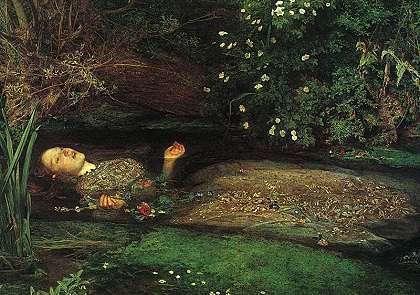 A reader writes:
A reader writes:
Dear Ray Harvey: Is Shakespeare all that?
— Slo Readuh
Dear Slo Readuh: No, he’s not all that. He’s all that and more.
It’s impossible to overstate Shakespeare’s genius. Forget that his plots were largely borrowed; forget that he never created a major character who didn’t have significant flaws. None of that is where Shakespeare’s genius lies. As Vladimir Nabokov — who was at times (not consistently) an insightful critic — once expressed it: “The verbal poetical texture of Shakespeare is the greatest the world has ever known, and is immensely superior to the structure of his plays as plays. With Shakespeare, it is the metaphor that’s the thing, not the play.”
Aristotle believed the creation of metaphor to be the highest mark of literary genius. Shakespeare’s metaphoric-poetic skill is virtually bottomless. Even if you were to take away his plays, he’d still rank as one of the greatest sonneteers of all time.
It is, I admit, a tragedy that the Elizabethan language has become to our modern eyes and ears so difficult. Much of Shakespeare does indeed require footnotes, which of course can make for some very rough going. I do understand that. Yet when you push past that — which is to say, when you begin at last to penetrate Shakespeare — you’ll glimpse something you can’t believe.
John Keats was not speaking hyperbolically when he said that Shakespeare “smacks of the divine.” Nor was Samuel Taylor Coleridge when he said that Shakespeare “possessed myriad minds.” Shakespeare’s words contain the kind of truth that seems otherworldly. Neither is it an accident that Shakespeare is quoted more widely than the Bible.
But it was Herman Melville, who thought Shakespeare “the profoundest of thinkers,” that captures the locus of his genius most appositely of all. Melville said that Shakespeare was “master at the art of telling truth even though it be covertly, and by snatches…. It is those deep far-away things that make Shakespeare, Shakespeare.”
Like Nabokov, Melville believed that it is neither the tragedies nor the comedies that make Shakespeare great: it’s the insights into humanity, which come at you constantly from among his plays and sonnets “like flashes of lightning illuminating the mysteries below.”
That’s not all: Shakespeare’s greatest living admirer (and arguably the world’s best-read human being) the critic Harold Bloom (not to be confused, as he so often is, with that hack Howard Bloom), honestly believes that in creating so many convincing characters, Shakespeare went far in creating our modern-day conception of humanity itself. It is an incredible statement, and yet I, for one, won’t argue it. In Harold Bloom’s own words:
“Shakespeare, who at the least changed our ways of presenting human nature, if not human nature itself, does not portray himself anywhere in his plays.”
Even more interestingly, perhaps, Mr. Bloom goes on to say this:
If I could question any dead author, it would be Shakespeare, and I would not waste my seconds by asking the identity of the Dark Lady or the precisely nuanced elements of homoeroticism in the relationship with Southhampton (or another). Naively, I would blurt out: did it comfort you to have fashioned woman and men more real than living men and women? (Harold Bloom, Genius, p. 18).
The profundity of his question is, I believe, the truest test of Bloom’s sincerity, for that question is almost frighteningly subtle — and as a writer of fiction, I can personally testify that there is much to that: I am deeply comforted by the women and men I fashion. But apart from the insight it provides us into Bloom’s own brain, it illustrates something even more significant:
It’s long been observed that one of the best measures of literature is when you can discuss the characters of a story or play as if those characters were real people: when you can talk about their personalities; when you can psychologize over them, their choice of careers, their deeds; when you can pick their brains and discuss their addictions and predispositions as if these characters were actual human beings. Many playwrights and novelists, and even many modern day screenplay-writers, have created characters that meet this criteria. But no one — and I mean no one — has come close to creating the sheer number of these characters that Shakespeare did. Love these people or hate them, Shakespeare brought to life a gallery of women and men who are completely human — and he did it in a language whose prosody for practitioners still astounds.
That is the real power of art, and of Shakespeare.
So no, gentle Slo Readuh, Shakespeare is not overrated. He is, if anything, vastly underrated.


